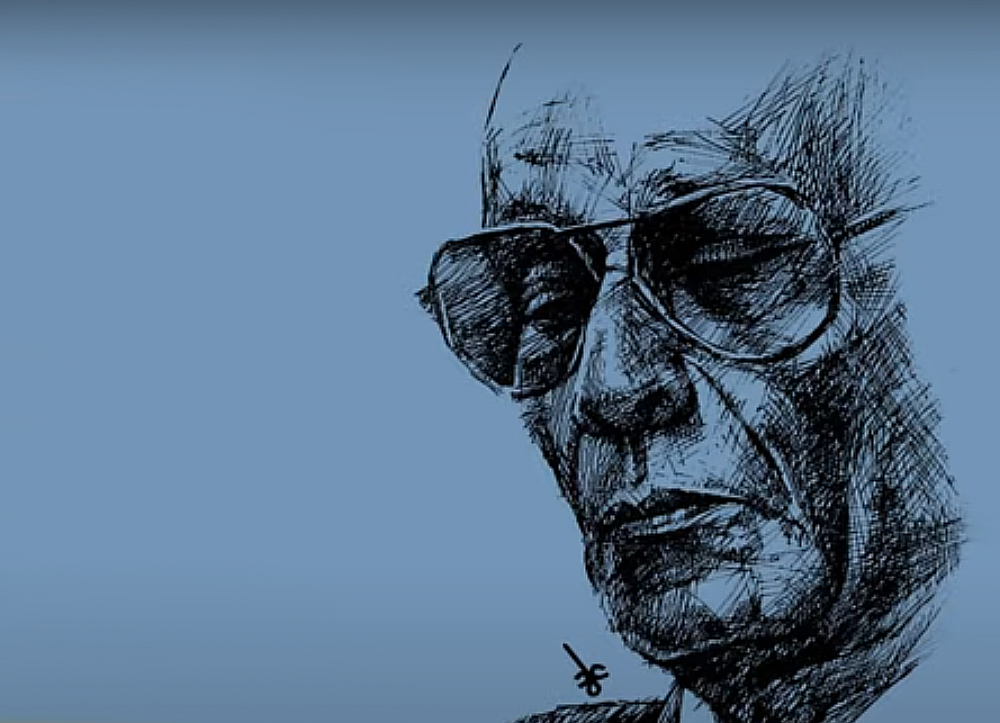
Mohamed Al-Amin: A Portrait of the Musician Outside the Theater Stage
Yousef Hamad
Since mid-April of last year, Sudan has been undergoing a destructive and senseless war that has claimed thousands of lives, with its appetite still open for more destruction. This war is an extension of repeated calamities that spared no patch of land or life in this troubled country. To emphasize the severity of the ordeal, the renowned musician Mohamed Al-Amin (1940 - November 2023) was mourned, marking the loss of a significant figure in Sudans cultural and artistic expression.
I became acquainted with the music of Mohamed Al-Amin when I was a child, perhaps he was the first musician I knew in my life. This acknowledgment is not an exaggeration; my family instilled in me an inherited love for this great musician. His songs and music were present through albums on all occasions, both formal and spontaneous.
If we were to consider what we had as albums (an audio library), our village homes were filled with Mohamed Al-Amin, as if monopolized by him. Moreover, his presence was a constant part of our family life, revered almost mythically, and we would gather to listen to him during our pure village evenings.
The story of Mohamed Al-Amin came to us straightforward, adorned with signs of genius, skill, and pride. Journalists and critics dared not deviate from describing him with the straightforwardness mixed with a humor attributed to him, indicating his circumstances and the spontaneity of his presence. I would argue that this stern mood resonated well with our familys preference for straightforwardness while being filled, at the same time, with timeless wits among us and their great souls.
With this presence and others, Mohamed Al-Amin entered the extended family as part of its identity for both its young men and women. The family was proud to align itself with his genius and musical imagination. No member of the family remained untouched by the music and the story of this rare artist who left an indelible mark on the history of Sudanese music.
In my case, he became an embodiment of that young admirer who dared to express his admiration for Mohamed Al-Amin by prostrating on the theater stage, a gesture that stirred public opinion greatly at the beginning of the 2000s, described by extremists then as associating partners with God and bowing to someone other than Him. Perhaps I was that young man, with all ease, were it not for shyness. It is not unlikely that I have expressed this gratitude secretly, in this way, thousands of times.
Later, I left the village and the influence of the family and its surroundings, allowing me the opportunity to study a bit of musical notation. This made me appreciate Mohamed Al-Amins music even more and contemplate the musical structure of his works that challenged the mainstream. Ironically, Mohamed Al-Amins works were few, very few (about thirty works), compared to over 60 years of his professional career in music and singing.
After just one decade of starting his musical project, Mohamed Al-Amin took control and realized how to keep his music alive in our hearts—by taking care of this music and constantly "developing" it. Thus, it was easy for us, the fans, to understand that Mohamed Al-Amin does not sing consistently as if he were a recorded disc or a cassette tape.
My study of musical notation, and before that my admiration for Mohamed Al-Amin, led me to adopt extreme and biased opinions, distinguishing between Mohamed Al-Amin, the musician, and the poets and lyricists whose words he composed and sang. This distinction makes poets and writers mere followers of a great follower and a massive, talented music maker who surpasses even the exceptional musicians. Please understand this differentiation only in the context of appreciating the creative music created by Mohamed Al-Amin and do not diminish the status of the songwriters in creativity and cultural expression. Nevertheless, everything pointed to Mohamed Al-Amin, the musician.

